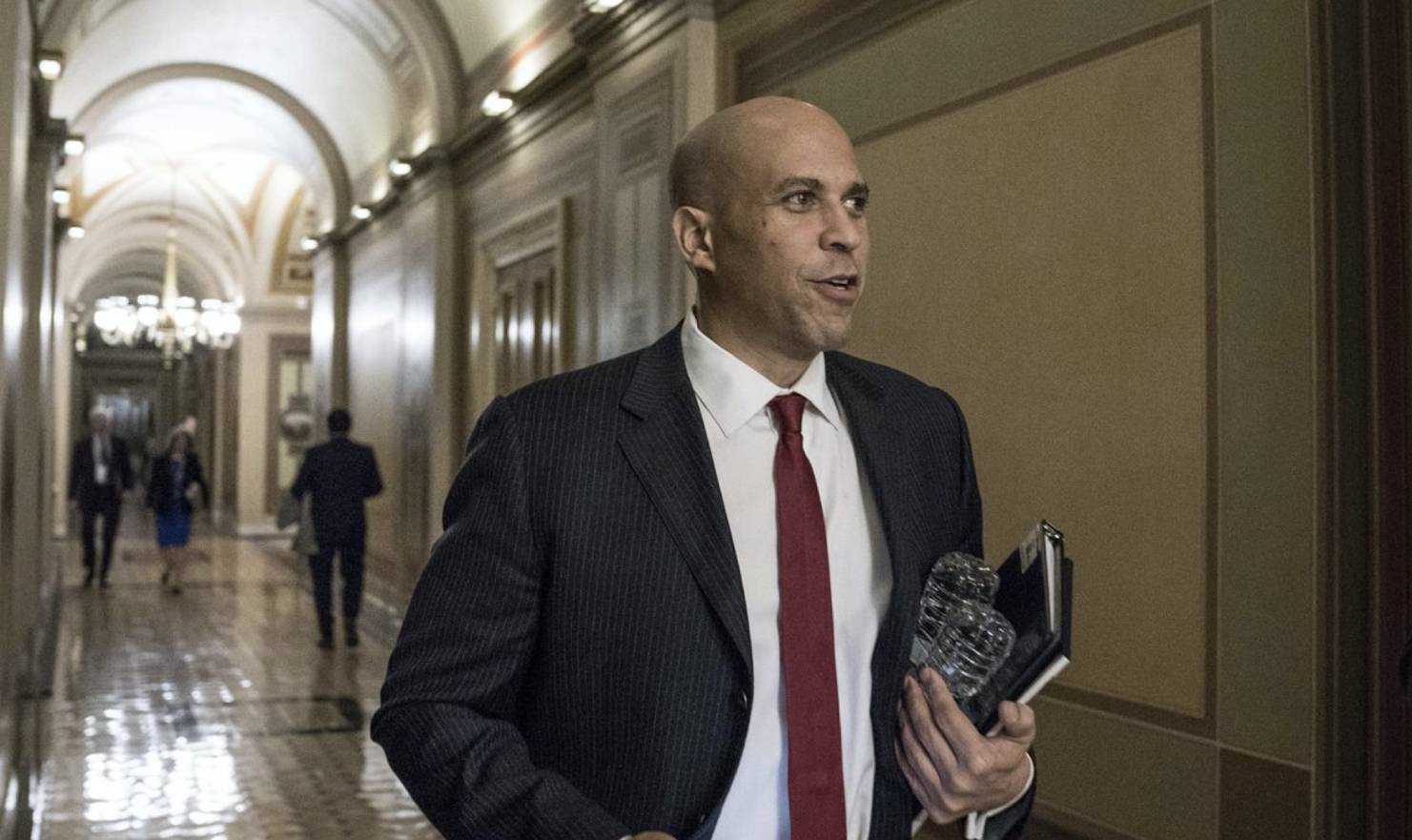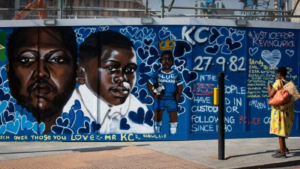Across the country, the coronavirus pandemic has disproportionately hit communities of color, specifically affecting black, Native, and Latino Americans at higher rates than whites.
In Mississippi, for example, while black people comprise 37 percent of the population, they make up 52 percent of Covid-19 deaths. And in multiple Southwestern states, the Navajo Nation has seen one of the highest rates of coronavirus cases in the country.
These disparities are the result of ongoing discrimination within the health care system and longstanding inequities around access to vital resources such as housing and even water. A new bill from Sen. Cory Booker (D-NJ) and Rep. Robin Kelly (D-IL) aims to provide an immediate way to help address some of these issues by allocating $1.5 billion in grants to local organizations that are trying to combat gaps communities of color are currently experiencing.
Their legislation, the Community Solutions for Covid-19 Act, which has been shared exclusively with Vox, focuses on getting funds to grassroots organizations that already have a track record of providing everything from access to medical care to culturally informed guidance about the pandemic.
In New Jersey, for example, a primary care physician named Alexander Salerno has started a pop-up clinic dedicated to providing coronavirus tests to low-income communities. Efforts like his would be among those that could qualify for these grants.
Rep. Kelly notes that this bill is looking to bolster community groups because many of these organizations have built-in trust with local residents. In some cases, because of their size, they might also be able to move more quickly during a time when such urgency is vital.
“What we’ve heard from doctors and schools is that … the messenger has to be familiar with the community and the community has to be familiar with the messenger,” Kelly, who’s also the head of the Congressional Black Caucus’s Health Braintrust, told Vox.
One possible concern about this approach, however, is whether a reliance on community groups shifts the burden of improving these disparities from the government to local entities.
“I think bills like this can be a double-edged sword … because they can create the perception that community organizations should be doing the work of government,” says Tiffany Green, an assistant professor in Population Health Sciences and Obstetrics and Gynecology at the University of Wisconsin Madison. “Namely, community organizations — particularly among communities of color — have been forced to step in because the government safety net has been purposely eroded over time.”
Aides for Booker and Kelly, when confronted with this question, noted that this bill seeks to “supplement” the work that organizations are doing and does not aim to replace government investment and engagement.
Ultimately, given the Republican opposition to additional stimulus, this legislation faces an uphill battle in Congress. Even so, it continues to raise awareness about the need for more government action in combating the health care inequities that have only been exacerbated by the pandemic.
What the bill would do
The legislation would authorize the secretary of health and human services and the Centers for Disease Control and Prevention to allocate grants to community organizations including nonprofits and faith-based groups, based on the work they’ve done to provide everything from access to medical supplies to anti-bias training for medical professionals. Other efforts that could qualify include those focused on bringing testing and treatment to more people.
There is no specified amount for these grants so organizations will have flexibility to receive what they need for their individual purposes, Booker and Kelly aides note. They add that the $1.5 billion figure would be spread across three years, and is a number they’ve arrived at following guidance from advocates on the subject.
The funds would specifically be given to organizations whose work focuses on groups that have seen more fallout from the virus, with a focus on racial and ethnic minority communities, tribal organizations, and immigrant communities. Those receiving the funds would be required to submit a report following the use of the grant to detail how the money had been used and the number of people who were helped by it.
According to Kelly’s office, organizations that would potentially be eligible include Real Men Cook, a Chicago-based organization dedicated to supporting black men and families that’s been focused on promoting wellness during the pandemic; and the Shriver Center on Poverty Law, which is part of coalitions like Health Illinois aimed at connecting immigrants with health insurance coverage.
“We are able to get money into the hands of local community members pretty quickly,” says Stephani Becker, the associate director of health care justice at the Shriver Center.
The speed and nimbleness with which local organizations can apply these funds could be a big upside of this legislation, note Green and RTI International Workplace Health Program director LaShawn Glasgow.
For example, “if testing is free or affordable and provided at convenient locations and times by trusted providers, we should see an increase in testing,” Glasgow says.
Congress is still lagging in its efforts to address coronavirus racial disparities
Booker and Kelly’s bill adds to a slate of proposals that lawmakers have introduced to tackle the racial disparities that have been made evident by the pandemic, and highlights how there’s much more that Congress can still do on this front.
The most recent stimulus bill that Congress passed, the Paycheck Protection Program and Health Care Enhancement Act, requires the HHS secretary to provide Congress with a report on the demographics of people who have been tested and diagnosed with coronavirus, within 21 days of the legislation’s enactment. A bill from Sen. Kamala Harris would set up a task force that would advise the Federal Emergency Management Agency on how to spend its money, and legislation from Sen. Elizabeth Warren, the Equitable Data and Disclosure Act, would require HHS to post daily data updates on coronavirus cases, broken out by race, ethnicity, and other demographic traits.
The recent CDC report tracking demographic data about coronavirus cases has been widely panned by lawmakers for being incomplete. “It was pitiful,” Kelly told Vox. “The CDC needs to get its act together. Data moves policy and resources.”
There are still many policies Congress could implement like emergency Medicaid or Medicare, which would guarantee broader health care coverage and access that would help address inequities in the near term. More broadly, however, Kelly emphasizes that the disparities that have become more apparent during the pandemic are ones that have existed for a long time — and will require longer-term solutions.
These inequities aren’t just confined to the crisis we’re in now, she notes. “It’s the racial disparities, period.”




